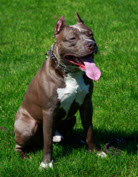Due to a combination of factors, the average value of an animal attack claim has increased 90 percent since 2003. The per-claim average is especially high in the Sunshine State, mostly because Florida has such favorable first party and third party liability rules in this area.
Florida has a limited strict liability law which applies to dog bite injuries. The problem with this law, as outlined below, is that many victims suffer serious non-bite injuries in many animal attacks.
Additional compensation is available in these situations. However, the victim/plaintiff must use some form of the one-bite rule. This common law doctrine holds owners responsible for injuries if they knew the animal was vicious. Evidence of knowledge includes:
- Baring teeth,
- Sinister growling,
- Prior attacks against other people or animals, and
- Aggressive barking.
Negligence, or a lack of ordinary care, is the most common animal attack recovery theory in Florida. Many cases, most notably a dog off a leash, also involve negligence per se, or negligence as a matter of law.
Types of Injuries in Florida
Most people readily associate severe physical injuries with dog bite incidents. Typically, bite injuries are both puncture wounds and tearing wounds. These types of dual-action injuries often require extensive, and expensive, reconstructive surgery. That’s especially true if, as is often the case, the victim is a small child or older adult.
Before dogs bite, they often lunge at the victim. If the dog is large and the victim is frail, the effect is similar to being hit by a motorcycle. The knockdown typically causes head injuries, broken bones, and other serious external trauma wounds. Internal injuries are common as well. The sudden force causes these organs to grind and bump against each other.
Psychological injuries are very common as well. Many dog bite victims experience Post Traumatic Stress Disorder-type symptoms. These symptoms include:
- Irrational fear of animals,
- Heightened awareness,
- Flashbacks, and
- Nightmares.
Most victims show significant improvement after long-term therapy. However, most victims also suffer residual effects for the remainder of their lives.
Third Party Liability in Florida Dog Bite Claims
In some serious injury cases, many individuals do not have enough insurance coverage to provide fair compensation. This problem is not as acute with regard to dog bite claims. The owner’s homeowners insurance carrier is usually legally responsible for damages. But if the owner has no such insurance, a Florida dog bite attorney needs to find another way.
Often, an employer is vicariously liable for damages. The respondeat superior doctrine applies if the tortfeasor was:
- An employee
- Who was acting within the scope of employment at the time of the injury.
Both these prongs are defined in broad, victim-friendly terms. Some examples include a dog walker, veterinary assistant, or school teacher.
Additionally, some landlords may be vicariously liable for dog bite damages. If the landlord failed to enforce a no-pet policy and the animal attacked someone, the landlord is liable for damages. The landlord liability rule is especially useful in cases where the tortfeasor has no homeowners insurance.
Rely on Experienced Attorneys
Animal attacks often cause serious injuries. For a free consultation with an experienced personal injury lawyer in Brandon, contact Reed & Reed. We have four area offices (St. Petersburg, Lakeland, Tampa, and Clearwater).
Resource:
insurancejournal.com/news/national/2018/04/06/485542.htm
https://needreed.com/top-three-insurance-company-defenses-in-florida-dog-bite-claims/

